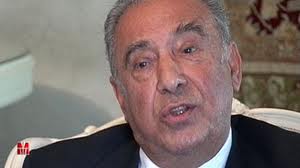One of the major problems faced by decision-makers is the rising cost of refinery projects
A few weeks ago I wrote about the outlook for the petroleum refining industry in the Middle East and the great expansion that is forthcoming from about 8 million barrels a day (mbd) to 15.5 mbd in 2020.
One of the major problems faced by decision-makers is the rising cost of refinery projects. The refinery cost index has risen by almost 100 per cent in the last 10 years according to Cambridge Energy Research Associates (CERA).
One example can be seen in the Al Zor refinery in Kuwait. These costs have been the reason for so much delay in the implementation of the project, which at 615,000 barrels a day will be the largest refining complex in the Middle East and is expected to take Kuwait’s refining capacity to 1.535 mbd.
The plans to construct the refinery were released in July 2007 and contracts were awarded to a number of well-known international contracting and project management companies in May 2008. The refinery was supposed to be completed by 2012 and its most important feature is not just its high capacity but the fact that it involves the largest ever desulphurisation complex of all atmospheric residue to a level of 1 per cent, in line with modern specs and to prepare feed for the conversion units that will follow.
For this reason the refinery cost was going to be $14.2 billion (Dh52.16 billion) including a marine terminal costing $1.2 billion. Opposition in parliament immediately sprang up claiming that the government did not follow approved procedures in the awards. The project and its associated contracts were cancelled in March 2009 due to a drop in crude oil prices, in the wake of the economic and financial crisis at that time, according to the government.
However, in June 2011 the project was reinstated and expected to be finalised at more or less the previous cost estimate for the refinery to be operational by 2018. Another major regional project is the joint venture between Aramco of Saudi Arabia and Sinopec of China for a new full conversion refinery in Yanbu. The venture was signed two years ago and the refinery is already under construction and may be completed by the second-half of this year. Its capacity will be 400,000 barrels a day for the production of light petroleum products of modern specification such as ultra-low sulphur diesel. Therefore, it is highly complex with its coking and hydrocracking units and almost no production of fuel oil and at a reported cost of $10 billion.
Another example of a highly complex refinery, which has just started operations in Jubail, Saudi Arabia, is the 400,000 barrels a day refinery joint venture between Aramco and Total. This too is destined to produce clean fuels of modern specifications and almost no fuel oil. The cost is reported to be $9.5 billion.
The investment costs per daily barrel refined are $23,090, $25,000 and $24,000 for the Al Zor, Yanbu and Jubail refineries respectively. These unitary investment costs would have been in the range of $10,000 to $11,000 per daily barrel 10 years ago. This reflects the rise in investment costs not only on account of inflation but for raw materials and the competition to build refineries, especially in Asia and the Middle East.
Therefore, the recent signing of a contract to build a refinery of 140,000 barrels a day in our region at a cost of $6.04 billion giving a unitary per barrel cost of almost $43,143 does raise many questions in need of answers. The refinery is not known to be more sophisticated than the above examples in the same region.
What is also important is the need for regional cooperation and the exchange of information between countries to make sure that costs remain competitive. Such cooperation may also lead to the common use of specialised construction machinery, whenever possible, so as to reduce the cost for everybody.
The Organisation of the Arab Petroleum Exporting Countries (OAPEC) and the Arab Petroleum Investment Corporation (Apicorp) can play a leading role in a proposed cooperation. Let us hope this will happen.
*) Former Director General of the Refineries Authority in Iraq and former Head of Energy Studies at OPEC Headquarter
Source: Gulf News, January 26, 2014








Comment here